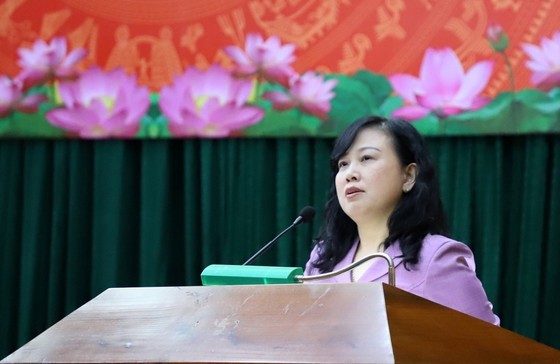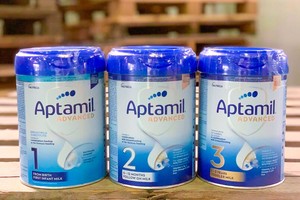 |
Minister of Health Dao Hong Lan |
The Vietnamese Minister of Health revealed at yesterday afternoon’s press brief that WHO and UNICEF have agreed to help find vaccine source for Vietnam to solve the shortage of vaccines in the national expanded program on immunization. Following public concern about the lack of vaccines in the national expanded program on immunization which may have increased the risk of disease outbreaks, the Ministry of Health has worked with partners.
Minister of Health Dao Hong Lan said that amongst 9 locally-produced vaccines in the national expanded vaccination program, medical centers have run out of DPT vaccine against diphtheria - pertussis - tetanus for children 18-24 months old. However, the lack of vaccine lies in the time when children have not yet reached the deadline for booster shots because last March, children got the shoot of this vaccine.
Therefore, right after the completion of bidding and procurement of vaccines, the DPT vaccine will be transferred to medical facilities for vaccine administration for children up to 24 months of age. Manufacturers of the DPT vaccine also affirmed that they are always ready to immediately supply this vaccine for the national expanded vaccination program when finishing bidding and procurement.
There is no shortage of other vaccines in the expanded program on basic immunization and the commune/ward health stations still administer vaccines to children.
However, the Minister of Health also said that healthcare institutions have been lacking the imported 5-in-1 vaccine against diphtheria - whooping cough - tetanus - hepatitis B - Hib meningitis for months.
According to Minister Dao Hong Lan, the lack of vaccines in the expanded vaccination program over the past time is due to the lack of state budget for the Ministry of Health's procurement, bidding and price negotiation.
After working with its partners, WHO and UNICEF agreed to help the Southeast Asian country to find vaccine sources.
Accordingly, these organizations will supply over 200,000 doses of the 5-in-1 vaccine in emergency support plus more than 65,000 doses from domestic funding sources will ensure the number of priority vaccines given to children at the age of vaccination.
The Ministry of Health will prioritize allocation to children in remote areas, areas with difficult conditions, where it is difficult for children to access vaccines and medical services. Currently, departments under the ministry are doing procedures to receive this support.
The Minister of Health also said that the ministry has worked with the supervisory delegation of the National Assembly Standing Committee on the continued allocation of the central budget for the Ministry of Health’s implementation of the national expanded immunization program effectively and consistently across the country. Thus, it is expected that there is no barriers to the implementation of the expanded vaccination program this year and in the following years.
























